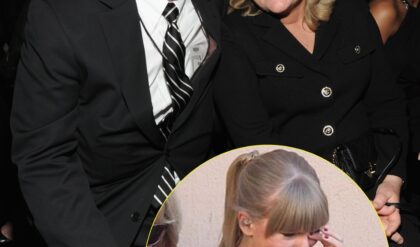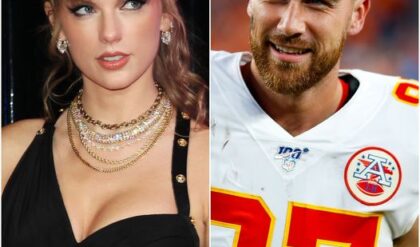The Intricacies of the Kendrick Lamar and Drake Feud: Industry Power Dynamics and Hidden Influences
In the dynamic world of hip-hop, rivalries between artists are often seen as purely competitive, but sometimes the layers run much deeper. A prime example is the ongoing feud between Kendrick Lamar and Drake, which not only highlights personal and artistic differences but also reflects the hidden machinations of the music industry.
In hip-hop, “receipts” — evidence to back up claims made in songs or public statements — play a crucial role in establishing credibility. When an artist makes a bold claim, the impact is significantly heightened if they can produce tangible proof.
This concept became particularly relevant in the feud between Kendrick Lamar and Drake, especially after the release of the track “The Story of Adidon,” where Pusha T exposed Drake’s then-secret son. The reveal was backed by solid evidence, adding weight to Pusha T’s words and creating a moment that was hard to match in the realm of hip-hop beefs.

Cat Williams shed light on a different angle of the Kendrick versus Drake feud, suggesting that the true beneficiaries of these high-profile conflicts are often the industry executives. Lucian Grainge, CEO of Universal Music Group (UMG), stands as a prime example of a powerful figure who profits immensely from such dramas. Kanye West stirred controversy by referring to Grainge as Drake’s “baby daddy” or “sugar daddy,” implying a close, beneficial relationship that influences the artist’s career moves.
Both Kendrick Lamar and Drake have significant ties to UMG. Kendrick signed a major deal with the company in October 2020, while Drake secured a lucrative agreement rumored to be worth between $400 and $500 million in 2021.
These deals not only provide financial benefits but also grant these artists considerable power within the industry. Speculation suggests that Drake’s deal might include equity, potentially giving him ownership stakes in other artists’ catalogs under UMG.
The public feuds between artists like Kendrick and Drake often serve as a smokescreen for deeper industry strategies. According to Williams, these rivalries can be orchestrated or at least manipulated by executives to maximize profit and control over the artists. This theory gains traction when considering how industry leaders might influence public narratives and artist behavior to serve their broader financial interests.

Beyond financial manipulation, the music industry has been marred by serious allegations, including those involving trafficking and other illicit activities. In a lawsuit against Sean “Diddy” Combs by producer Rodney “Lil Rob” Jones, Lucian Grainge was implicated in facilitating and participating in criminal enterprises. The lawsuit alleges Grainge was involved in activities at Diddy’s residences that included minors and illegal substances. These claims suggest a widespread network of complicity that, if proven, could expose significant corruption.
Kendrick Lamar has used his music to make pointed accusations against Drake, alleging misconduct that parallels the serious allegations against figures like Diddy. On tracks from his 2022 album “Mr. Morale & the Big Steppers,” Kendrick calls out Drake and his crew for their actions, positioning himself against what he sees as morally reprehensible behavior.
Drake’s responses, such as in “The Heart Part Six,” often focus on defending his reputation rather than engaging deeply with the accusations. He dismisses the allegations, emphasizing his high profile and suggesting that any truth to these claims would have already led to legal action. This defensive stance highlights the complex interplay of public perception, legal scrutiny, and industry power dynamics.
The discourse around Drake and Lucian Grainge extends into sensitive areas involving race, power dynamics, and the role of cultural background in the music industry. Discussions often touch on the influence of Jewish executives like Grainge and the impact on Black artists, a topic that requires careful and thoughtful engagement to avoid reinforcing harmful stereotypes or promoting divisive narratives.
The ongoing feud between Kendrick Lamar and Drake, intertwined with the influence of industry executives like Lucian Grainge, underscores the complex and often hidden forces that shape the careers and lives of high-profile artists. It reveals a multifaceted landscape of cultural dynamics, power, and control within the music industry, calling for a nuanced understanding and responsible dialogue. As fans and observers continue to dissect these developments, the demand for transparency and accountability from industry leaders grows, pointing to a broader need for ethical reforms in how the entertainment business is conducted.





